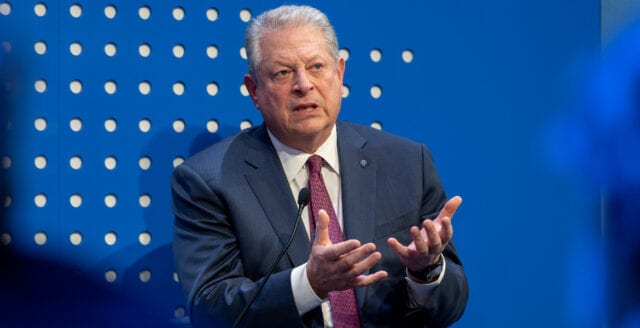More expensive cars. Higher taxes. Only minor subsidies. More expensive fuel. More expensive electricity. More expensive insurance. More expensive parking. Fewer parking spaces. More traffic on streets and roads.
Motorists and car owners are expecting all of this in the future. Not even electric cars will escape it. And those who decide all of this are those in Sweden's small Green Party, which at present in the Swedish Parliament is being given free rein for its generally anti-automobile views.
The Greens are not alone in disliking exhaust fumes, noise, and congestion. But apart from this, they also disapprove of anyone privately owning cars in the first place. They want us all to travel by public transport, by train or bus – or even better, to walk or cycle.
This may be suitable for fast and alert city-dwellers of an active age. The Greens' ideal world seems to be one where there are thousands of sporty, brisk persons on the go, with porridge and carrot juice in the bag. But many more are not living this way, nor do they want to – nor could they.
This applies not least to everyone who contributes to the value and development of Swedish society through his or her labor. These are the people whose work contributes to child care, education, research, healthcare, elder care, policing, defense, and other community services. For them, time is a scarce commodity and distance an obstacle. They solve these problems using their own cars. They even do the labor of driving themselves, even though this usually goes unpaid (although it is taxed). Our politicians know this and start from in times of unrest.
But otherwise, private driving is a huge tax cow: it never runs out, since the need for private transportation is so great that it can rarely be met by public transportation alone.
Instead of thanking ordinary citizens for their service and facilitating the ownership and use of their own cars, the Swedish Parliament – and the government are responding with more restrictions and stricter fees.
This is what Swedish drivers' everyday lives looked like in the autumn of 2021
Car prices
Only smaller gas and diesel cars cost less than SEK 300-350,000. Hybrids cost SEK 50-100,000 more than that. Pure electric cars of a practical size cost around half a million or more – but thus far their owners receive 70,000 kronor in bonuses.
Leasing
Smaller gas and diesel cars cost SEK 2-3,000 per month under a three-year contract. A few electric cars were being leased for around SEK 3,000 per month in order to entice more sales, but most of them cost at least 4-5,000 kroner per month. Companies can deduct Value-Added Tax from the price.
Tax
Everyone was paying SEK 360 per year. Gas and diesel cars result in a carbon dioxide tax of SEK 107 per gram and kilometer between 90 and 130 g/km. It is SEK 132 per gram over 130 g/km. Taxes increased in 2022: a VW Passat was SEK 1,700 more expensive, which equals SEK 9,000 per year. Electric cars receive their SEK 70,000 bonus, although there is no bonus for those that cost more than SEK 700,000. In 2023, the bonus will be reduced to SEK 50,000.
Fuel
Gas cost about 17.50 per liter in October, while diesel cost SEK 19. Price hikes were in progress, however. Drivers have a duty to reduce emissions, which means blending ethanol with the fuel. This will gradually increase until it reaches 28% by 2030 for gas, and 66% for diesel. This is worse for engines. Likewise, the lower energy content leads to higher consumption – meaning that it will also be more expensive.
Charging electric cars
Charging directly from the grid at 1.50 per kWh means that it costs approximately SEK 3 per mile. Using a charging box at home or at work, including installation, costs SEK 10-20,000. Over five years, that means 2-4,000 kronor per year, or about 1.50-3 kronor per mile. At the charging post, it is SEK 2-5 per kWh and SEK 4-10 per mile. Ionity tar 8.70 per kWh = 17.40 per mil. Additionally, parking fees may apply. It may be cheapest to charge at home, but this also means a limited range.
Parking
The countryside and smaller towns still often use a parking disc for free parking. The larger cities charge a parking fee that ranges from a few kronor all the way to 50 kronor per hour in Stockholm's inner city. The purpose of this, as some MPs have openly stated, is quite simply to get cars out of the cities.
Garages
The rent per square meter is around SEK 500-1,000 per year = SEK 12 - 24,000 per year, and is higher in large cities. The cost also increases with demand.
Insurance
It is getting more expensive for more expensive cars, as well as due to the sensitive electronics that are increasingly being added to cars. The current crucial issue in relation to electronic driver assistance is the question of who is driving the car in the event of an accident.
Financing
Low interest rates provide cheap loans and make private leasing more interesting, but increasing pressure on higher interest rates could result in interest rates of 4-6% and higher borrowing costs within a few years.
Benefit cars
New rules are increasing the costs and reducing the deductions. There will be no difference between buying and owning a car privately – other than that you, as a private person, do not have to finance the deal. In return, you commit to a fixed monthly price during the contract period. The benefit reduces pensionable income.
Conclusion
Having a car is becoming more and more expensive, as well as more difficult due to taxes and regulations. In larger cities, extra costs can almost double the total cost. You can take a lot of taxis for the same price, but the car gives you more freedom – even in your working life.
Tege Tornvall






